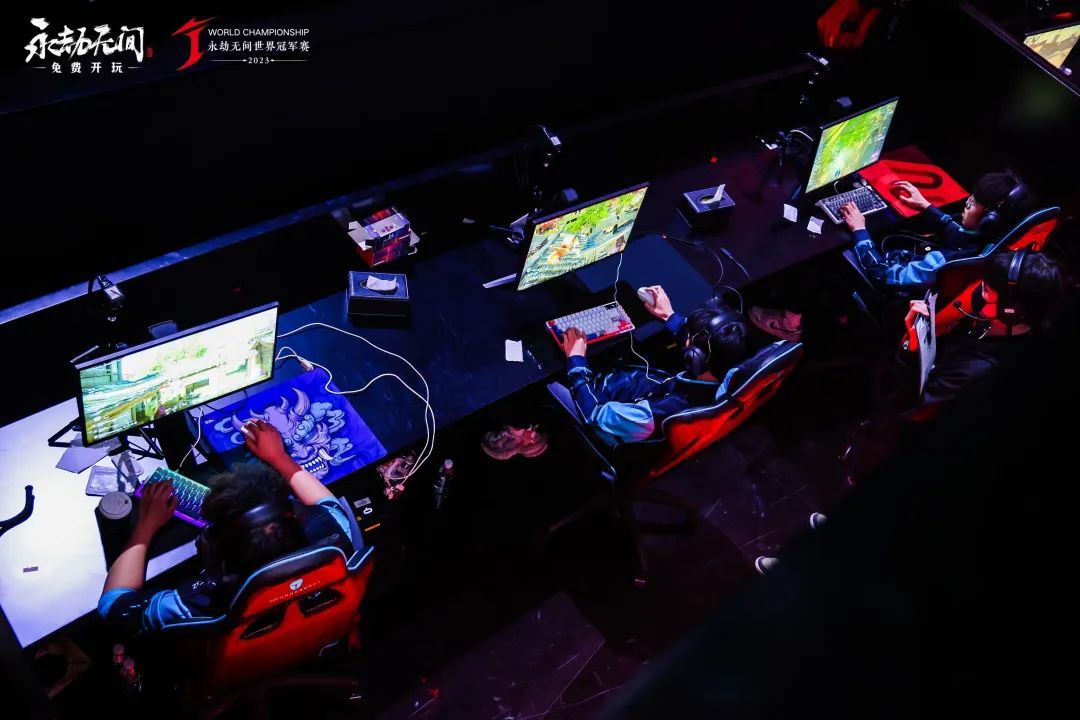Entering the Year of Establishment: China's game industry moves towards a new stage of maturity and stability.
����ʱ�䣺2023-12-27
Source: China News Service

In the 1990s, when foreign games were introduced to China, people gathered around the 'Ze Wang' game console, holding the gamepad and fighting over it. This scene was the first memory of gaming for Chinese people at that time.
Since then, some game enthusiasts in China had the idea of creating their own games and founding a game magazine.
In 1994, China launched its first game magazine, Electronic Game Software. At the same time, the first home-grown game in mainland China, Eagle Commando, was also released in 1994. These pioneers of China's game industry laid the initial foundation for the start and development of China's game industry.
With the passage of time, 1994 is almost 30 years ago, and China's game industry is about to enter its first year. China's game industry, which once started in ignorance, is entering a new stage of maturity and stability; it has also risen to an important place in the international arena.
1
Game market: lots of good news this week.
On 25 December, the State Press and Publication Administration (SPPA) released 105 newly approved domestic game licences, the number of individual approvals exceeded 100 for the first time, and the range of game companies covered was also wider.
Tang Jiajun, deputy secretary general of the China Audiovisual and Digital Publishing Association and secretary general of the Game Work Committee, said in an interview with China News Agency's State of the Union that the news of the approval of 100 game version numbers fully embodies the strong support of the relevant authorities for the game industry and their determination to support it. This is not only an encouragement for the whole industry, but also lays a more solid foundation for the development of the industry.
According to him, the fact that hundreds of games have passed the test means that major game companies have achieved remarkable results in terms of compliance, self-discipline and quality development. The authorities have set a direction and a clear stance on the regulation and development of the game industry. This move will encourage game companies to pay more attention to improving their own quality, compliance and self-discipline, and push the game industry into a higher quality and more innovative direction.
On the 25th of December, many media reported that Blizzard and many domestic game companies were discussing the "return of national service" issues, or will return to the Chinese market.
According to Tang Jiajun, regardless of whether Blizzard will return to the Chinese market this time, from the perspective of industrial cooperation and international cultural exchange, the re-cooperation between Chinese and foreign game companies is undoubtedly in line with the current trend. At present, the entry of outstanding international game masterpieces into the Chinese market is an important trend in the development of the game industry, which also provides the Chinese market with more high-quality game products and opportunities for cultural exchange.

Photo: by Qin Jing, China News Agency.
2
Domestic games: on the rise internationally.
According to the Game Industry Committee, Chinese domestic games have entered 91 countries and regions around the world in the past five years, while game products from 34 countries and regions have also entered the Chinese market.
Many overseas users have developed positive perceptions and evaluations of China through exposure to Chinese games. Relevant reports show that overseas users of domestic games have a 20% higher overall positive perception of China than the general public; 68% of overseas users said they liked the Chinese cultural elements in the games.
The "2023 China Game Overseas Research Report" points out that at present, the layout of Chinese game companies' "overseas" business in neighbouring regions has been normalised, and the layout of the North American and European markets has also been gradually accelerated.
In the five major "overseas" mobile game markets, the number of Chinese game products is increasing, and more products of Chinese game companies have entered the head list, indicating that overseas mature markets are still the main direction of the "overseas" game. At the same time, the competitiveness of Chinese overseas game companies is also increasing.

The scene of the 2023 World Championship of Everlasting Havoc Official pictures of the Everlasting Havoc Tournament.
On 8 December, the 2023 TGA ceremony, known as the Oscars of the games industry, announced a number of annual lists, and Chinese game developer Miha Tour's game 'Wipeout: Star Dome Railway' won the TGA 2023 Best Hand Game of the Year award. In addition, Miha Tour's Original God was also nominated for the Best Continuous Operation Award this year, marking the fourth consecutive year the game has been nominated for the TGA. Previously, in 2020, 2021 and 2022, 'Original God' was nominated for both the Best Mobile Game and Best Operating Game awards.
The local handheld travel game 'Going Overseas' has become a major trend in recent years.
According to some data, since 2019, the revenue growth rate of China's self-developed games in overseas markets has exceeded that of the domestic market. Therefore, more and more hand game manufacturers and capital power on the one hand, continue to operate in the domestic market, on the other hand, also involved in overseas markets, trying to dig the game market "second bucket of gold".
It is not difficult to see that Chinese game companies have actively laid out to further promote the game "overseas". Especially through the creation of Chinese-themed high-quality games, Chinese culture in the international arena to establish an image, show vitality.
3
International players: Fall in love with Chinese culture through games.
Games are not only entertainment, but also a means of spreading Chinese culture. Unlike books and news reports, Chinese games, as a dynamic vehicle of cultural expression, show the world China's history, tradition, culture and innovation.
In recent years, the cultural dissemination of games has become a major highlight. For example, the 2021 hit game "Eternity" has not only brought the beauty and romance of Chinese martial arts culture to players around the world, but also brought domestic games to a brand new status in the world gaming circle, successfully promoting Chinese culture "overseas" through the content of the game itself. On the 90th day of its global release, sales exceeded 6 million copies, setting a new sales record for domestic buyout games.
On 13 December, the exchange meeting between Chinese and Vietnamese players of the World Championship was held in Chengdu. Four young gamers from China and Vietnam exchanged team uniforms and had a friendly and warm exchange.
Uniq, a player from Vietnam's 521 team, vividly shared Chinese cultural stories during the exchange: Vietnam and China have many similarities in terms of Lunar New Year customs, Confucian culture and family relationships. Meanwhile, TV shows such as Romance of the Three Kingdoms and Journey to the West are also popular in Vietnam. More unexpectedly for Chinese gamers, Chinese-developed games are also starting to gain a large following in Vietnam.
Liu Mengfei, a teacher, master tutor and game researcher at the Digital Media Department of the School of Arts and Media at Beijing Normal University, said in an interview with China News Service's State of the Union that a successful culture "going overseas" must be one that allows foreign players to take the initiative in telling China's cultural stories, and games, as dynamic carriers of cultural output, can help foreign players develop their own culture and communities overseas by generating culture and cultivating overseas communities so that foreign players can enjoy their games. As a dynamic carrier of cultural output, games can generate culture and cultivate overseas communities, allowing foreign players to spontaneously spread game culture.
Liu Mengfei said that Chinese games that "go overseas" are not only successful in spreading Chinese culture, but also play an important role in promoting local economic development. For example, a martial arts game based on traditional Chinese culture produced by XISHANJU Game Studio was so popular in Vietnam because of its compatibility with local culture that its partner became the No. 1 game developer and operator in Vietnam. This cultural and economic win-win situation has given new impetus to the Vietnamese economy, and also strongly supported the share and status of Chinese games in the international market.
4
Game industry: Radiating Upstream and Downstream Industries.
Vietnam and China have many similarities in terms of Lunar New Year customs, Confucian culture and family relationships. Meanwhile, TV shows such as Romance of the Three Kingdoms and Journey to the West are also popular in Vietnam. More unexpectedly for Chinese gamers, Chinese-developed games are also starting to gain a large following in Vietnam.
In the upstream of the games industry, games are closely related to many fields such as film and live broadcasting. Of particular interest are e-sports and live streaming of games, which have become two of the most important areas in the upstream industry.
In the downstream of the game industry, games are closely related to mobile phones, cloud services, artificial intelligence, hosts, graphics cards and other hardware equipment manufacturers. These industries, driven by games, together form a complete chain of the game industry ecosystem.
Among the top 10 technology companies in the world by market capitalisation, seven are closely related to the game industry: Apple, Microsoft, Google, Amazon, Nvidia, Meta and Tencent. It is not difficult to see that the game industry is becoming one of the core areas of the layout of the technology giants.
Tang Jiajun also believes that with the development of science and technology, games and technology complement each other and jointly promote each other's progress. In the "testing ground" of science and technology, games play an important role and become a catalyst for technological development. In addition, with the rise of gamification thinking, games have penetrated into various industries such as healthcare, education, culture and tourism, providing in-depth support to various industries.
At present, the VR / AR industry, chip industry, artificial intelligence and other industries are closely related to the game industry.
At the same time, the influence of the game industry has spread to many upstream and downstream industries.
Tencent game vice president Cui Xiaochun said in an interview with China News Agency's State of the Union, in September this year, China Southern Airlines and Tencent cooperation in full-motion flight simulator view system through the introduction of self-developed game engine and AI + PCG + AIGC and other game technology, and successfully overcame the traditional view of the product of artificial modelling problems. This innovative project includes five core technologies, covering ultra-realistic simulation, high-performance simulation, intelligent airport model generation, multi-channel high-precision fusion calibration and high optical performance virtual images. This will not only improve the efficiency and effectiveness of flight training, but also bring China's full-motion flight simulator visual system to an advanced international level. Cui Xiaochun said, "In the future, we will continue to optimise our digital assets and game technology, and work to further improve the performance of the visual system in imaging and modelling.
As 2024 approaches, China's game industry is at the beginning of a new decade of development. With the continuous development of science and technology, the game industry will adopt a more complex and diversified development pattern. At this new starting point, China's game industry must continue to strengthen its innovation capability, enhance international cooperation and cultivate more excellent talents, so as to participate in the future competition of the global game industry with higher standards and broader vision. (Text: Chen Haoxing; Photo: Qin Jing, official of the Forever Unchained Tournament)

